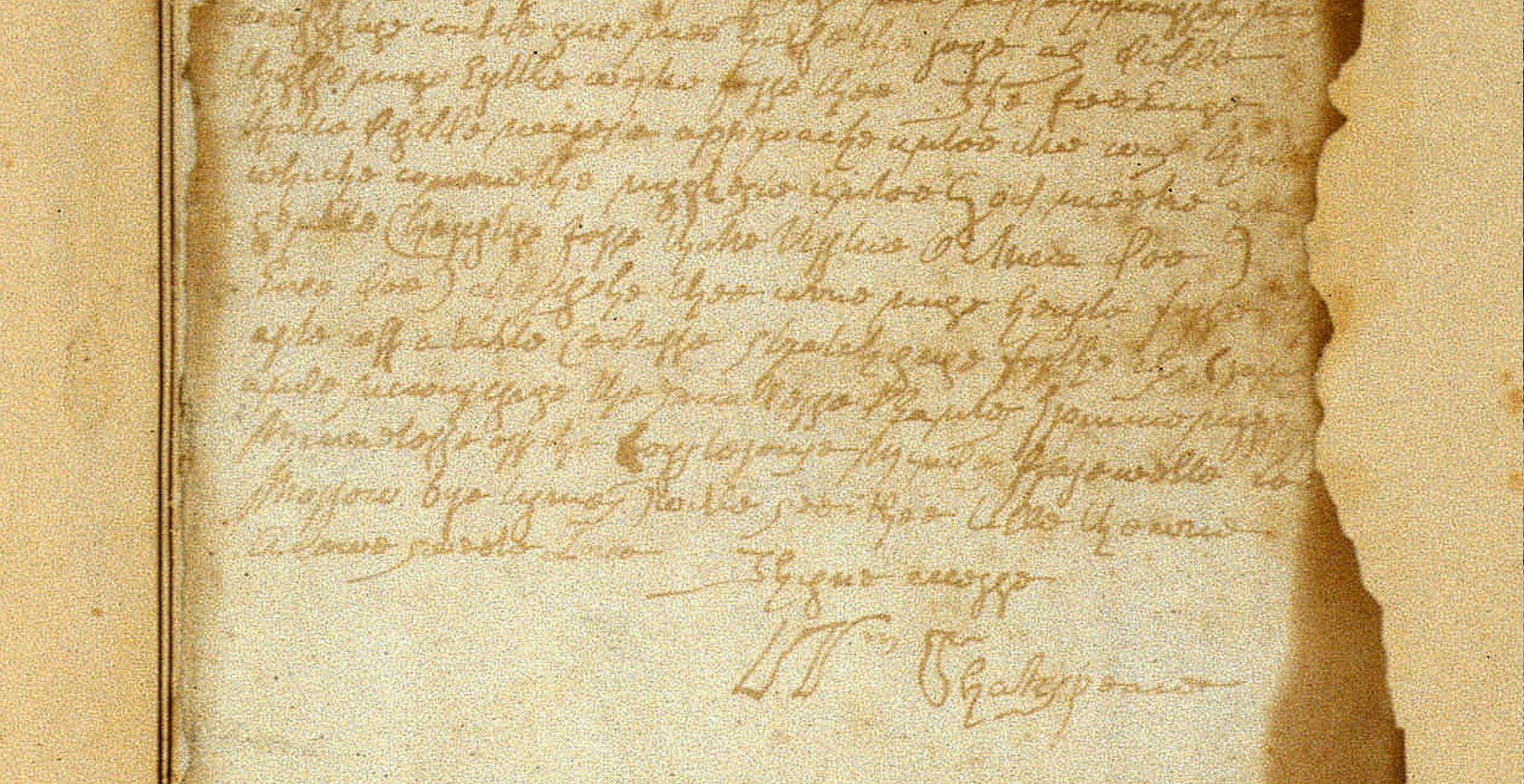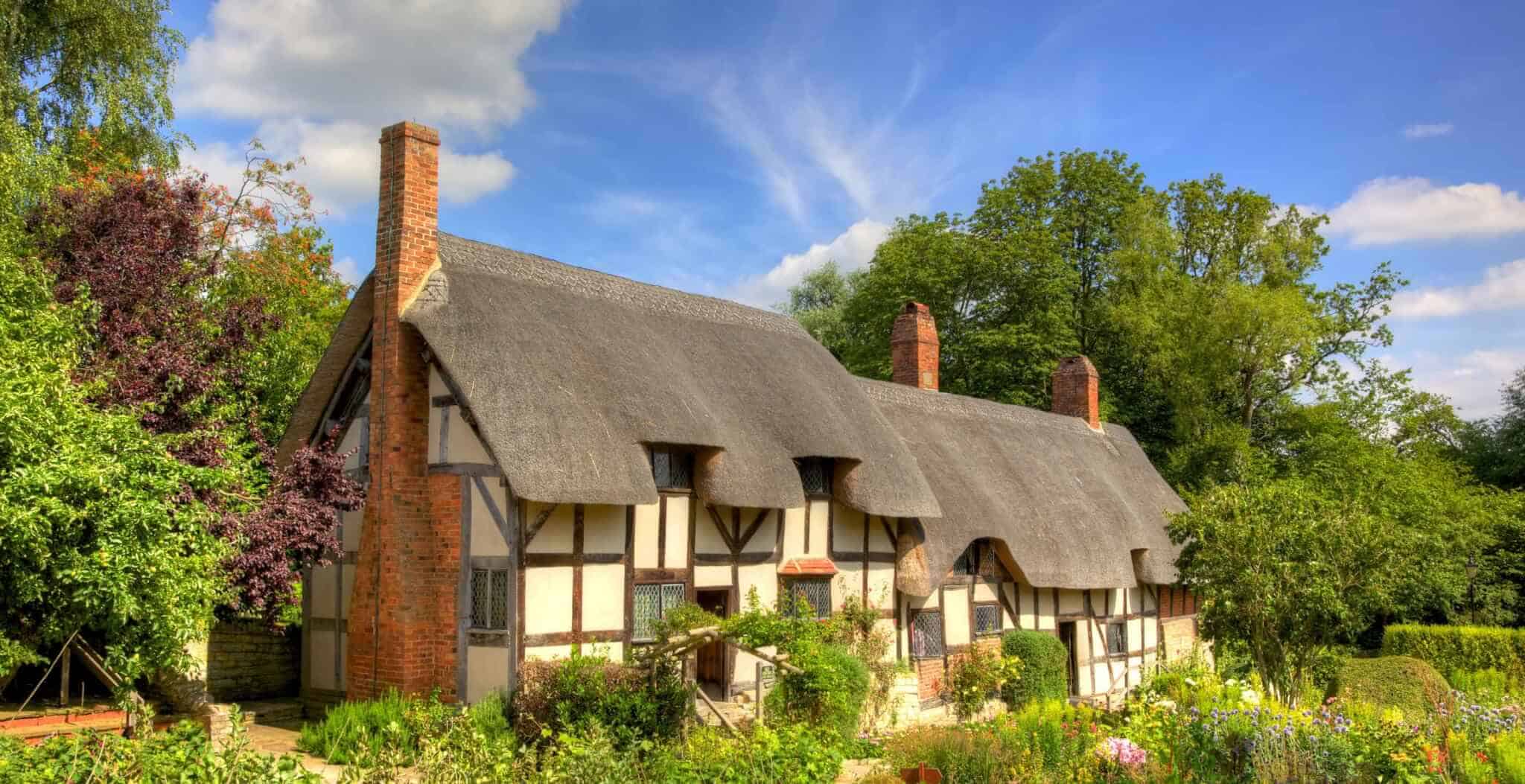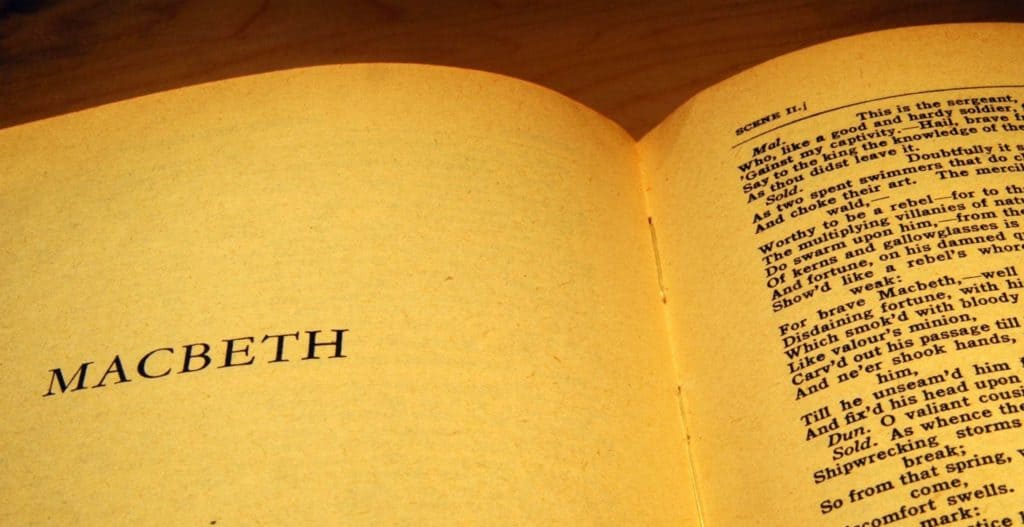The most famous of all English playwrights was born in Stratford-upon-Avon in 1564. William’s father John was a wealthy merchant and a respectable member of the community within the small Warwickshire town.
It appears the John’s business interests may have taken a turn for the worse when William was in his early teens, as William failed to follow his father into the family business.
Little is known of William’s early life, but it is thought that he may have attended the town’s free grammar school, learning Latin and Greek amongst many other subjects.
What he did immediately after leaving school is also a little vague; local Warwickshire legends recall tales of him poaching deer at the nearby Charlecote Estate, and nights of heavy drinking sessions in several of the local village pubs. Perhaps the former would have closely followed the latter!
What is known is that an 18 year-old William married Anne Hathaway, a farmer’s daughter from the nearby village of Shottery in 1582. Anne was 26 at the time, and very, very shortly after the wedding, their daughter Susanna was born. Two years later Anne gave birth to twins, Hammet and Judith. Many believe that in these early years of marriage, William may well have supported his new family by becoming a schoolteacher.
Why William came to leave Stratford and his young family is again unclear; perhaps to seek his fortune in London. He appears to have arrived in the capital sometime around 1590. Initially he earned a living as an actor, before his first poem ‘Venus and Adonis’ was published in 1592. He certainly started to earn his fortune in the years that followed; between 1594 and 1598 William’s considerable output, which included six comedies, five histories as well as the tragedy Romeo and Juliet, took the London theatre world by storm.
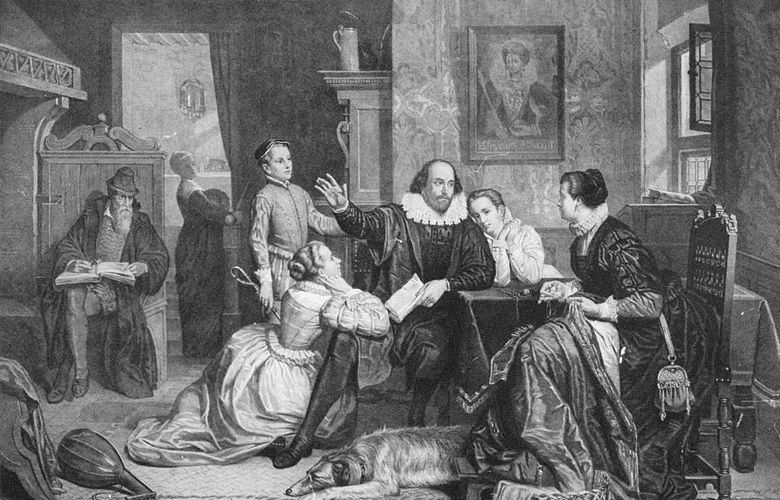
Although generally considered to be happy and prosperous years for William, his personal life was dealt a severe blow by the sudden death of his son Hammet aged 11 in 1596. Perhaps in part due to this blow, William re-established his ties with the town of his birth by buying and renovating a large and imposing mansion in Stratford called New Place. His father’s fortunes also appear to have a turn for the better as he was awarded his own coat-of-arms the following year.
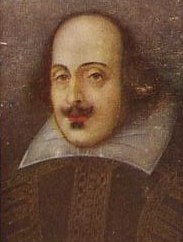 Despite buying his house in Stratford, William continued to spend most of his time in London. It was about this time that he became a partner in the new Globe Theatre on Bankside just south of the Thames. This proved to be a risky but extremely successful investment. The Globe was bigger and better equipped than any of its rivals, with a huge stage that Shakespeare exploited to the full with productions like Henry V, Julius Caesar and Othello
Despite buying his house in Stratford, William continued to spend most of his time in London. It was about this time that he became a partner in the new Globe Theatre on Bankside just south of the Thames. This proved to be a risky but extremely successful investment. The Globe was bigger and better equipped than any of its rivals, with a huge stage that Shakespeare exploited to the full with productions like Henry V, Julius Caesar and Othello
These were the last years of Elizabeth I’s reign, and following her death in 1603 she was succeeded by King James I and VI of Scotland. James was the son of Mary Queen of Scots and Lord Darnley, the first king to rule over both Scotland and England.
Perhaps by coincidence, it is generally accepted that Shakespeare wrote one his greatest tragedies, his famous ‘Scottish Play’ Macbeth sometime between 1604 and 1606. This story of two ancient Scottish kings is mixed with strange tales of witches and the supernatural; ‘coincidently’, King James had written a book on the subject of spirits and witchcraft called Daemononlogie just a few years earlier.
The play also depicts Macbeth’s friend Banquo as a noble and loyal man. Chroniclers suggest however, that Banquo was in fact an accomplice in Macbeth’s murder of Duncan. As the new king claimed ancestry from Banquo, to have shown him as a murderer of kings would perhaps not have endeared the playwright to James.
King James appears to have been so greatly impressed by Shakespeare that he conferred his own royal patronage on him and his partners; they became the ‘King’s Men’, receiving twice the pay they had received previously from Queen Elizabeth.
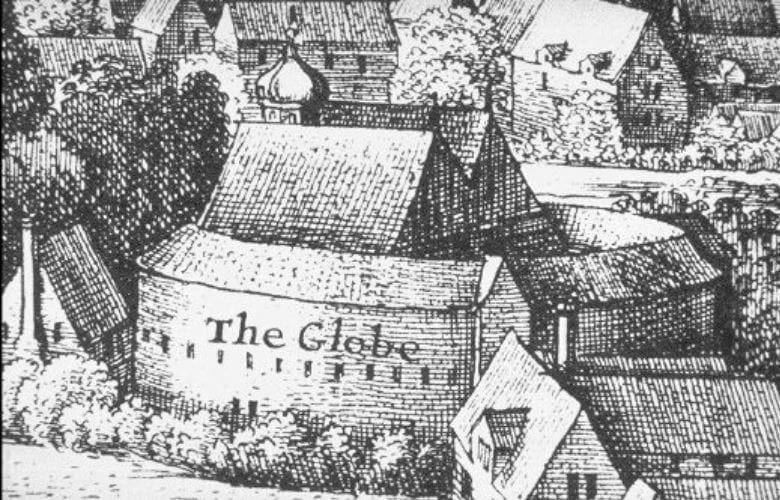
In the years that followed William gradually relinquished his commitments to the King’s Men which allowed him to resume his position as head of the Shakespeare family back in Stratford. Although his parents had died some years earlier, his daughter Susanna had married and William’s first grandchild, Elizabeth was born in 1608.
Whilst most of his remaining days were to be spent in Stratford, William continued to visit London in order to look after his many business interests,
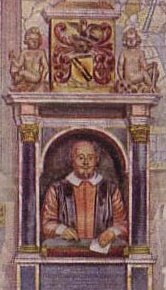 When William died at his home in Stratford on St. George’s Day, the 23rd April 1616, he was survived by his wife Ann and his two daughters. William was buried in the chancel of the Holy Trinity Church, Stratford two days later.
When William died at his home in Stratford on St. George’s Day, the 23rd April 1616, he was survived by his wife Ann and his two daughters. William was buried in the chancel of the Holy Trinity Church, Stratford two days later.
Through his will William had sought to keep the estate he had created intact for the benefit of his descendants; unfortunately his direct line ended when his granddaughter died childless in 1670.
However the works that Shakespeare created continue live on through the countless school, amateur and professional productions performed across the world each year. Just a few of these are mentioned below along with the approximate dates that they were first performed;
Early Plays:
The Two Gentlemen of Verona (1590-91)
Henry VI, Part I (1592)
Henry VI, Part II (1592)
Henry VI, Part III (1592)
Titus Andronicus (1592)
The Taming of the Shrew (1593)
The Comedy of Errors (1594)
Love’s Labour’s Lost (1594-95)
Romeo and Juliet (1595)
Histories:
Richard III (1592)
Richard II (1595)
King John (1595-96)
Henry IV, Part I (1596-97)
Henry IV, Part II (1596-97)
Henry V (1598-99)
Later Comedies:
A Midsummer Night’s Dream (1595-96)
The Merchant of Venice (1596-97)
The Merry Wives of Windsor (1597-98)
Much Ado about Nothing (1598)
As You Like It (1599-1600)
Twelfth Night, or What You Will (1601)
Troilus and Cressida (1602)
Measure for Measure (1601)
All’s well that Ends Well (1604-05)
Roman Plays:
Julius Caesar (1599)
Antony and Cleopatra (1606)
Coriolanus (1608)
Later Tragedies:
Hamlet (1600-01)
Othello (1603-04)
Timon of Athens (1605)
King Lear (1605-06)
Macbeth (1606)
Late Plays:
Pericles, Prince of Tyre (1607)
The Winter’s Tale (1609)
Cymbeline (1610)
The Tempest



